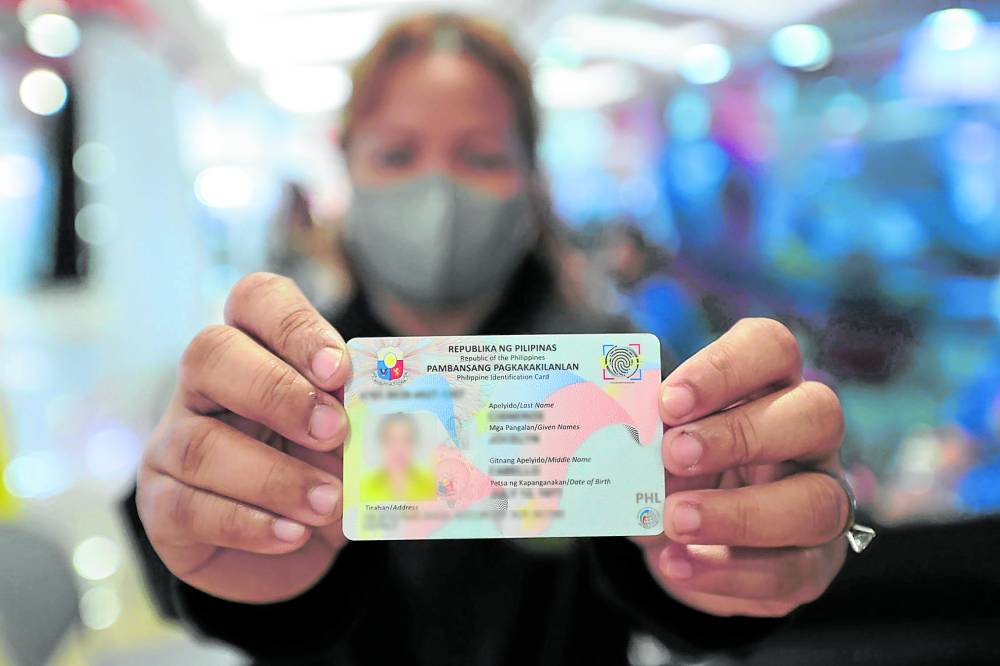
SOME HAVE IT, MANY DON’T A woman shows her national ID which she got at SM North in Quezon City in July last year. —PHOTO BY GRIG C. MONTEGRANDE
President Ferdinand “Bongbong” Marcos Jr. has reiterated anew his order for the Philippine Statistics Authority (PSA) to expedite the long-delayed rollout of the Philippine Identification System (PhilSys) or the national IDs.
He issued that directive to the agency on Thursday, following up for the third time on the already interminable project. Marcos also held a meeting that day with the Private Sector Advisory Council (PSAC) headed by businessman Sabin Aboitiz.
Private sector’s help
“During the discussion, President Marcos asked the private sector to help get the national ID out, noting it has the technology and capability for new digital IDs,” Presidential Communications Secretary Cheloy Velicaria-Garafil said in a statement on Friday.
According to Garafil, Marcos wanted the private sector tapped for a possible public-private partnership (PPP) with PSAC.
Garafil said among the advantages of the IDs for Filipinos are their usefulness in facilitating loan applications, cash aid distribution and other government transactions, as well as protection from identity theft and their additional uses as digital wallets and credit cards.
The IDs can be emailed as a digital format and also delivered as a physical item.
‘Left behind’
She also cited a study by research group McKinsey Global Institute which said an emerging economy availing itself of a digital ID program could “unlock an economic value of up to … 3 percent of [a country’s] gross domestic product.”
Yet these benefits depend on an actual, working ID system. Garafil quoted the President as telling the council that “we have been left behind in terms of technology, so we have to catch up.”
Marcos’ predecessor Rodrigo Duterte signed into law Republic Act No. 11055, establishing the national ID system, in August 2018.
But three years after the enactment of the law, the Philippine Statistics Authority (PSA) said it was only able to distribute 14.3 million IDs out of an estimated 50 million applications for those cards. Subsequent updates by the agency would cite a 20-million increase in those applications and 3.6 million more IDs distributed.
Printing capacity
The rollout is certainly far from complete—thus the President’s inclination to tap the private sector.
Marcos first took up this issue just two weeks after he was sworn into office, as he instructed the PSA’s head agency, the National Economic and Development Authority (Neda), to speed up the distribution of the IDs.
In a Facebook post at that time, he said he was targeting the use of the IDs “by our countrymen in the early part of 2023.”
But by December last year, the President, in a meeting with Neda and the PSA, ordered them for the second time to fast-track the issuance of those IDs. With each directive to speed up their release, either the PSA or the Office of the Press Secretary (OPS) cites the advantages of the national ID system.
The OPS, however, noted last December the “volume of data” and other issues affecting the printing capacity for the rollout.